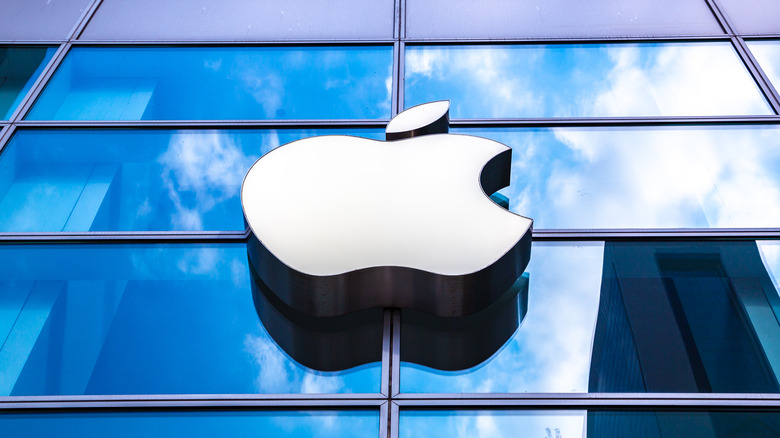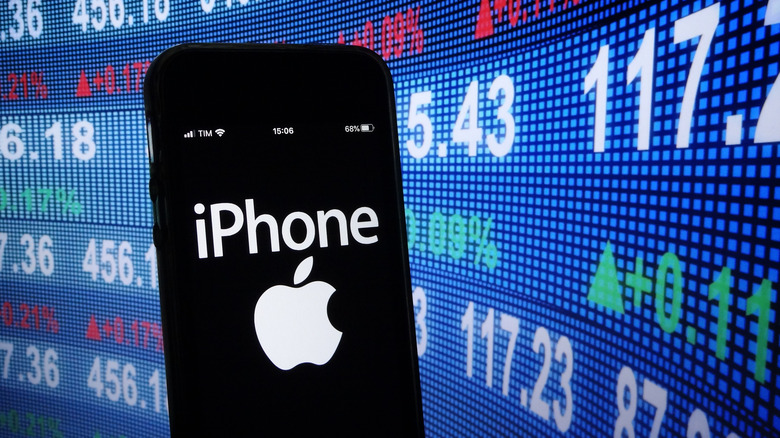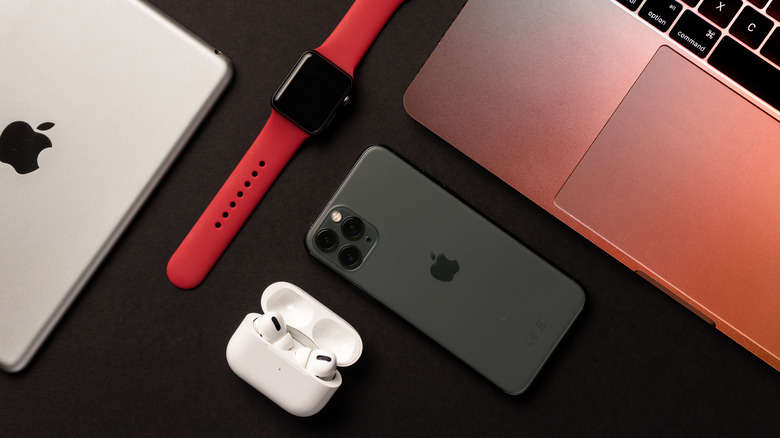The Real Reason Michael Burry Bet Millions Against Apple
Michael Burry of "The Big Short" fame is shorting Apple with put options on 206,000 shares, a document on the Securities and Exchange Commission (SEC) website revealed on May 16. The 13F disclosure has caught the attention of investors who, understandably, keep an eye on Burry's activities in hopes of gleaning a bit of market wisdom. The investor is best known for having predicted the subprime housing bubble in the mid-2000s and the following market crash, and he made millions of dollars as a result. Burry also led the charge ahead of the meme-stock investing frenzy in GameStop and bet against Elon Musk's Tesla, not to mention his criticism of dogecoin and Robinhood at various points, among other things.
Business Insider reports that through his private investment firm Scion Asset Management, Burry bought stock for Alphabet and Meta Platforms in addition to his surprising bet against Apple, which was, at one point, the most valuable company in the world. When Burry makes a move on the market, every trader and finance investor pays close attention. This time — once again — Burry is puzzling the financial sector, leaving them wondering what he sees that they don't.
In contrast, Fool reports that renowned investor Warren Buffett has strengthened his position by buying more Apple shares. As two iconic and highly influential investors who have very different styles go different ways, many ask who is making the right move — Burry or Buffett? Stephen Wright, writing for Fool, has an interesting answer: they are both right on the money.
Understanding the short and long-term Apple play
Wright explains that Buffett is a long-term investor while Burry shorts stock on short-term plays. Buffett is not in the business of predicting company stock prices but invests in companies that he believes have business value down the road. Burry, on the other hand, is looking at what Apple stocks will do in the near future. Inflation, supply chain issues complicating the technology sector, China's COVID-19 lockdowns, and the performance of NASDAQ are bound to affect Apple stock in the short term, or so the idea goes.
Burry has been open about his vision of the market, claiming that "the greatest speculative bubble of all time in all things" is inevitably leading to the "mother of all crashes" with investors piling up on cryptocurrencies and dabbling in meme stocks (via Business Insider). Burry's put options on Apple shares give him the right (but not the obligation) to sell shares at a certain price, at a certain time.
Benzinga adds that Burry's bearish position is valued at around $36 million if he exercises it and would, in such a case, be the largest position in his portfolio. Apple stock had a big run, quadrupling its price since early 2019. However, by May 2022, the company's stocks had dipped 20% since early April. The Cupertino company saw a 16% drop in the stock price in this past quarter alone. Burry's portfolio reveals his confidence in the U.S. market. He slashed it from 20 holdings to just six in the third quarter of 2021, with a value that dropped from $140 million to $42 million. In the fourth quarter, he swapped three of his remaining six holdings, lifting his portfolio to $74 million. "Short sellers on a stock have nothing, zero, zilch, nada, to do with the success or failure of the underlying business," Burry tweeted on April 27.
Does the move mean Apple is in trouble?
Apple, as with many companies around the world, was hit hard by the COVID-19 pandemic and the resulting disruptions it introduced into the supply chain. In October 2021, the company announced a record fiscal fourth quarter with $83.4 billion in revenue. That wasn't the full story, however, as Apple CEO Tim Cook had revealed in a statement to CNBC at the time that ongoing supply chain problems had cost the company billions of dollars during that same quarter.
Though there's no reason to assume Apple's long-term outlook is anything less than great, it is possible these issues, combined with a general economic downturn expected to reduce consumer spending, may result in a bit of a stumble for the company in the more immediate future. Burry's decision to bet against Apple seemingly indicates he sees the potential for it to experience an atypically large split from its historical value, though short of him laying out his thoughts in public, this remains speculation. All the while, less valuable stocks for companies that don't depend so heavily on consumer spending may become more appealing until the pandemic's economic ramifications are well and truly behind us.


